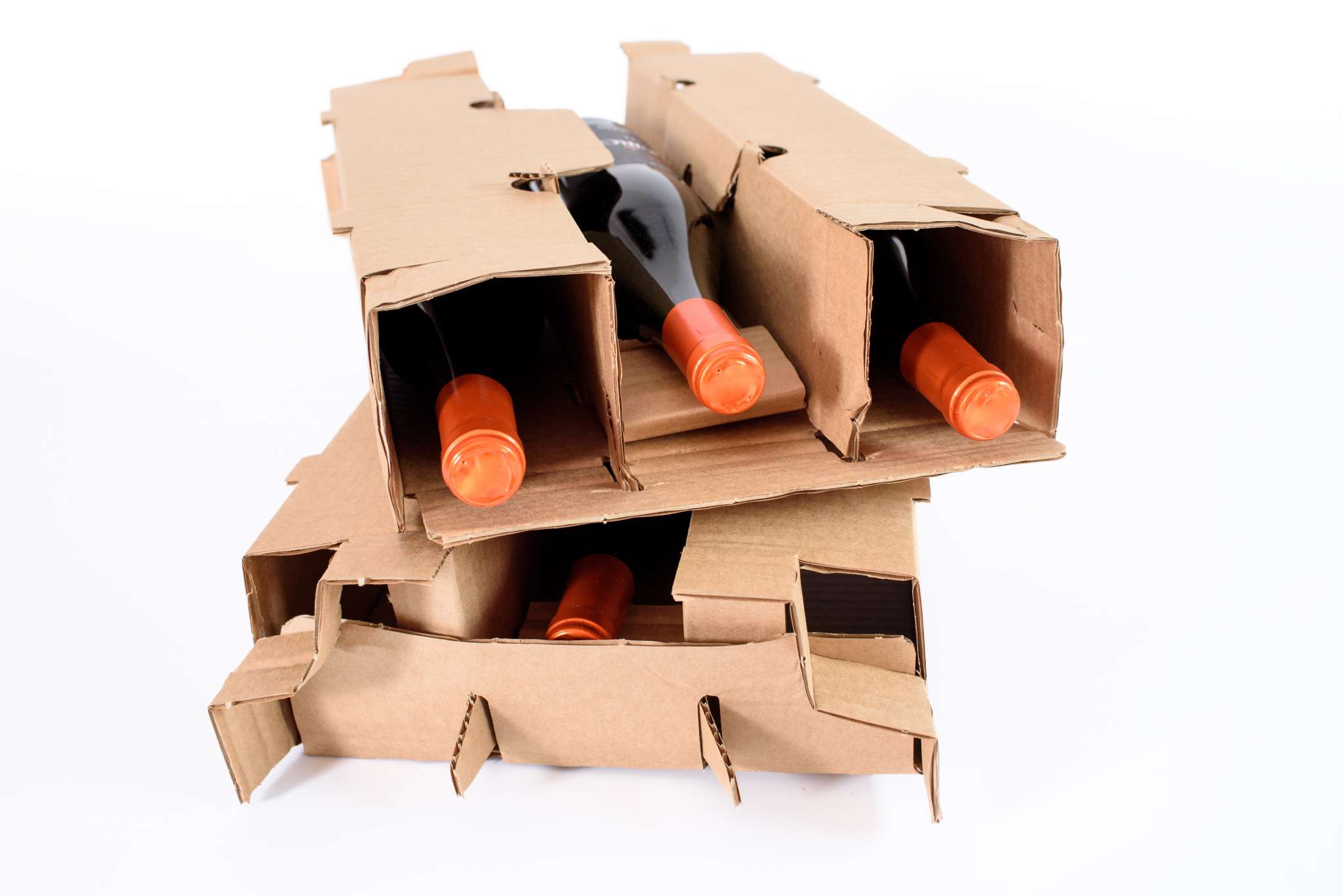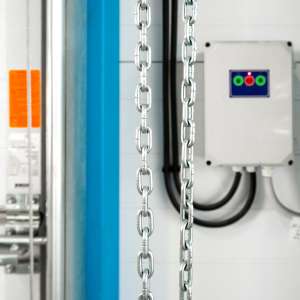Sustainable Packaging Solutions for Wine Shipping
Latest update on 25 June, 2024 by Aaron Kwok– Marketing Analyst at FreightAmigo
The wine industry has long grappled with the environmental impact of traditional packaging methods, from the excessive use of plastics and fossil fuel-intensive transportation to the challenges of recycling and waste management. However, a tide is turning as consumers become increasingly conscious of their carbon footprint and demand more sustainable alternatives. This shift has prompted innovative companies to explore groundbreaking solutions that not only reduce the industry’s environmental toll but also enhance the customer experience. In this comprehensive article, we delve into the key environmental challenges associated with conventional wine packaging, analyze the cutting-edge sustainable alternatives, and provide actionable strategies for businesses to seamlessly integrate eco-friendly practices into their operations. By embracing these transformative packaging solutions, the wine industry can pave the way for a greener, more responsible future while delighting customers with their commitment to sustainability.
Want To Compare The Best Express, Air Freight, Sea Freight, Rail Freight & Trucking Rates So As To Have Better Control On Cost?
The Environmental Toll of Traditional Wine Packaging
The wine industry’s reliance on traditional packaging methods has long been a source of concern for environmentally conscious consumers. From the excessive use of plastics and the energy-intensive transportation of heavy glass bottles to the challenges of recycling and waste management, the industry’s carbon footprint is undeniably significant.
Excessive Plastic Consumption
One of the primary issues with traditional wine packaging is the widespread use of non-biodegradable materials, such as bubble wrap, polystyrene, and plastic foam. These materials contribute to the growing global plastic crisis, with their persistence in the environment leading to devastating consequences for ecosystems, marine life, and overall environmental health.
Carbon-Intensive Transportation
The transportation of bottled wine also plays a significant role in the industry’s environmental impact. Heavier packaging, such as glass bottles, requires more fuel to be transported, resulting in higher greenhouse gas emissions and a larger carbon footprint. This challenge underscores the need for more sustainable packaging solutions that can reduce the industry’s overall environmental impact.
Recycling Challenges
Alcohol packaging products, including bubble wrap and plastic foam, often face recycling restrictions, leading to their disposal in landfills. This non-biodegradable waste further exacerbates the environmental strain, highlighting the importance of exploring eco-friendly alternatives that can be easily recycled or composted.
Embracing Sustainable Packaging Solutions
In response to the growing demand for environmentally responsible practices, innovative companies are pioneering sustainable packaging solutions that not only address the industry’s environmental challenges but also enhance the customer experience. These cutting-edge alternatives offer a promising path towards a greener future for the wine industry.
Compostable Materials
One of the most promising sustainable packaging solutions is the use of compostable materials. These materials, which can naturally decompose in aerobic soil within weeks, provide an eco-friendly alternative to traditional packaging, reducing the strain on the planet and creating nutrient-rich soil in the process.
Recycled and Recyclable Materials
Another avenue for sustainability is the incorporation of recycled and recyclable materials into wine packaging. By utilizing non-toxic recycled paper, cardboard, and recyclable plastic, companies can reduce their carbon footprint and ensure that their packaging has a second life, contributing to a more circular economy.
Lightweight Designs
The weight of packaging materials plays a crucial role in sustainability, as heavier designs require more fuel for transportation, resulting in higher gas-related emissions. Innovative companies are exploring lightweight distribution options that align with their commitment to environmentally conscious practices, further reducing the industry’s carbon footprint.
Aligning with Consumer Preferences
As consumer preferences evolve, with a growing majority influenced by sustainable packaging choices, companies are actively exploring and implementing packaging designs that cater to these values. By recognizing and responding to this shift, businesses can position themselves as leaders in the sustainability movement and appeal to an increasingly eco-conscious customer base.
Ensuring Quality and Safety
One common concern with sustainable alternatives is the perceived compromise in safety and durability. However, leading companies are investing in sustainable packaging solutions that ensure structural integrity and product safety without sacrificing environmental benefits.
Strategies for a Seamless Transition to Sustainable Packaging
Transitioning to sustainable packaging solutions requires a holistic approach that addresses various aspects of a business’s operations. By implementing the following strategies, companies can navigate this transformation seamlessly and position themselves as champions of environmental responsibility.
Reducing Carbon Emissions
Analyzing the current carbon footprint and implementing strategies to reduce emissions is a crucial first step. This may involve improving transport efficiency, utilizing environmentally friendly packaging, and investing in energy-saving production methods.
Optimizing Logistics for Sustainability
Streamlining logistics is essential for minimizing the environmental impact of packaging. By optimizing production and distribution processes, businesses can reduce their overall carbon footprint and explore alternative shipping methods that align with their sustainability goals.
Educating Customers About Safety and Sustainability
Customer awareness and understanding play a vital role in the success of sustainable packaging initiatives. Businesses must effectively communicate the transition to an environmentally conscious approach, highlighting the benefits and encouraging customers to make informed, eco-friendly choices.
Embracing Lightweight and Durable Designs
Reducing the weight of packaging materials can significantly contribute to lower carbon emissions during transportation. By exploring lightweight yet sustainable materials that meet environmental and operational requirements, companies can further reduce their environmental impact.
Collaborating with Value-Aligned Suppliers
Partnering with suppliers who share a commitment to environmental responsibility ensures a seamless transition to sustainable packaging. Businesses should seek out suppliers that provide materials with favorable environmental properties, such as recyclability or compostability, and work together to support the broader goal of reducing the industry’s environmental footprint.
Conclusion
The wine industry’s shift towards sustainable packaging solutions represents a pivotal moment in its journey towards environmental responsibility. By embracing innovative materials, streamlining logistics, and aligning with consumer preferences, companies can position themselves as leaders in the sustainability movement, delivering not only exceptional wine but also a commitment to a greener, more resilient future. As the industry continues to evolve, the integration of these sustainable packaging solutions will not only reduce the environmental toll but also enhance the customer experience, fostering a deeper connection between wine enthusiasts and the brands they love. Through collaborative efforts and a steadfast commitment to innovation, the wine industry can pave the way for a more sustainable tomorrow, where each bottle of wine brings joy to the consumer and contributes to the preservation of our planet.
If you’re looking For Shipping Wine, Please Go To The FreightAmigo Page For Inquiries
Shipping Tips | Ways to Optimize Wine Shipping Operations | FreightAmigo
Wine Shipping | E commerce | Ultimate guide | FreightAmigo
If you have any inquiries on logistics / supply chain, feel free to contact FreightAmigo now:
Chat with us online | Hotline: +852 28121686 | WhatsApp: +852 27467829









































